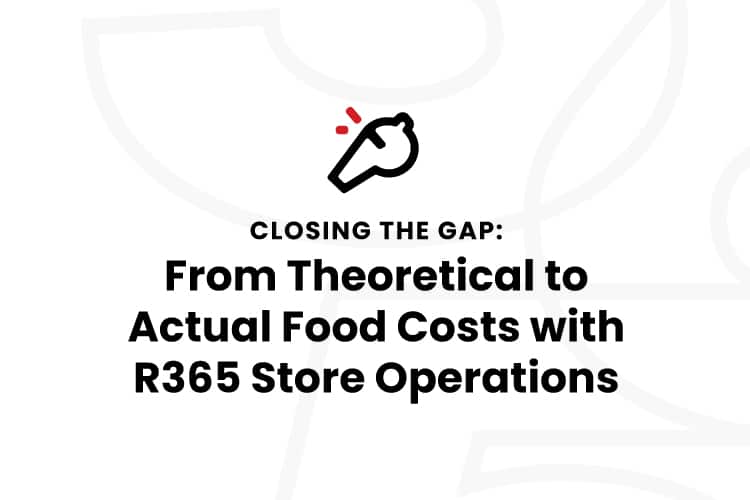The Great Resignation has our entire industry worried about attracting and retaining enough quality restaurant employees to keep our doors open. A key finding in the National Restaurant Association’s 2022 State of the Industry report is that 9 of 10 restaurant operators said that being understaffed is having a significant or moderate impact on their restaurant’s ability to grow and succeed.
In the same report, a majority of restaurant operators said they expect the restaurant staffing shortage to extend into at least 2023. This unfortunately means that many leaders are now struggling with restaurant manager retention due to burnout by working tirelessly to fill the staffing gaps caused by employee turnover.
Whether you are the front of house, back of house, bar, or general manager you have most likely had bouts of job burnout. The physical symptoms and emotional exhaustion not only cause increased manager turnover, but they can also lead to serious long term medical conditions.
If you are experiencing burnout, below are 5 important skills that got you into your restaurant leadership position to begin with but may have faded over the last few years in the wake of the pandemic.
Dedication. This may be the most important factor, because without a true passion and commitment for the industry, you simply will not be driven to put in the time and energy necessary to succeed. No one else can have that passion for you.
When you feel your passion start to fade, take a step back and remember why you are here. Look beyond the daily tasks and remember the big picture. Your daily duties may include creating schedules, counting inventory, and entering invoices, but that does not define you.
You are a restauranteur. You create the food, drinks, and special environment where people gather with family, friends, and colleagues to enjoy themselves and make memories.
Resourcefulness. Restaurant owners always need to be at the top of their game. This is a highly competitive market with extremely low margins. You need to be able to think on your feet. If something is not working, it needs to be fixed quickly and wisely. Whether it be your menu prices, your catering hours, how to beat the new competitor down the street, or even the temperature in your walk-in cooler until the repair gets there; you always need to be ready to problem solve.
When you start to feel that you are fighting a never-ending battle of putting out fires, it may be time to rethink your processes. Are you operating a certain way just because “that’s how it is done here”, or because that is how you were trained when you started? Is there a smarter way of doing certain things?
So many restaurant processes are automated now. Whether it’s accounting, scheduling, or inventory, there are faster and easier ways to do things at affordable costs. Start with the biggest consumer of your time and energy and begin to research your options.
Endurance. Restaurant managers put in a lot of hours – sometimes 12 or more a day. How many times have you promised your child that you will be at tonight’s soccer game but were absent or late due to the latest fire? Owning a restaurant is more of a lifestyle than a job – be ready for some long days and sleepless nights.
When you are just exhausted and ready to get off the hamster wheel but don’t know how, things can look pretty bleak. It may be time to get some rest and recharge. You may think that you can’t afford to be away from your business, but can you afford not to?
The restaurant will not crumble if you decide you need to sleep a full eight hours tonight. If you feel that you are crumbling inside, those repercussions on your business are far greater than being behind a day on paperwork.
Delegation. Even if you put in 12-15 hour days, there will always be more to be done. You need to delegate to survive. When you just can’t make time to do everything that needs to get done in a day, it may be time to reprioritize your personal life.
Yes, the restaurant needs you, but you also need a life outside the restaurant. Start small by writing down your obligations for the week then prioritize them. A manager or key employee can enter those invoices for you, but they can’t go to your child’s soccer game for you. And the joy that you get from doing the things that you once loved will reenergize you in both your personal and professional life.
Communication. Good communication skills are important for your retention strategy in the hospitality industry. Your employees need to understand your vision and exactly what is expected from them each day to get there. A good communicator is charismatic and will lead employees, not push them.
When you have reached a point where you feel that you are not getting what you need from your employees, it may be time to reexamine your communications skills (especially when you are frustrated).
For example, are you telling your employees over and over to make sure that they have completed their side work before clocking out, yet it continues to be an issue? Be sure that you communicate these important issues calmly and clearly through multiple channels. Bring it up in every pre-shift meeting, mention it personally to employees during slow times, and post a written reminder that they will see when they go to clock out. Employees will quickly recognize what is non-negotiable.
The current employee shortage has created the need for innovative technologies in our industry more than ever. That’s where Restaurant365 can help. Our back-office management solutions cover accounting, payroll, scheduling, inventory, manager logbook, and more to give you the insights and intelligence boost your bottom line while reducing your workload.


